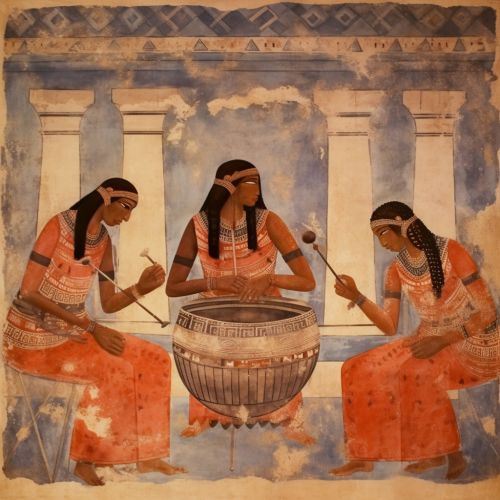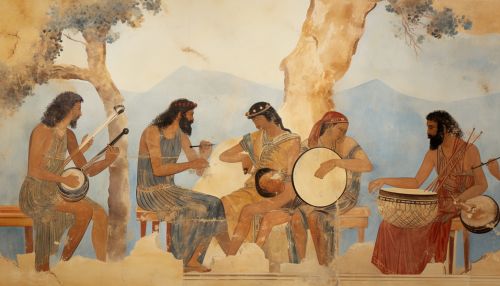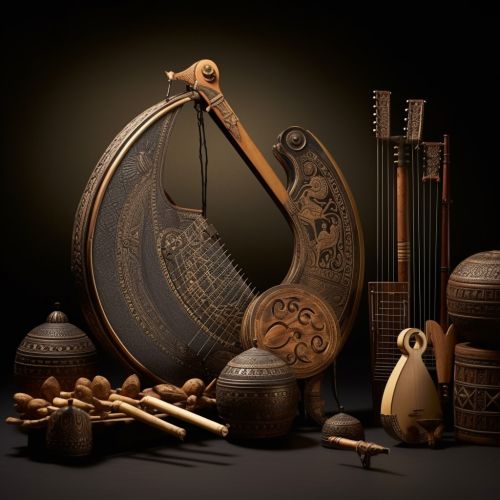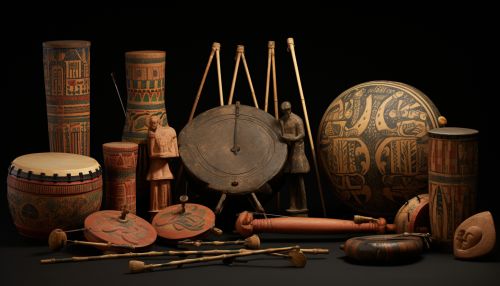Music in ancient Greece
Origins and Development
The origins of music in ancient Greece can be traced back to the Minoan civilization in CreteMinoan civilization. The Minoan civilization, which existed from approximately 2700 to 1450 BC, is known for its vibrant frescoes and pottery, which often depicted musicians and dancers. The music of this civilization is thought to have played a significant role in religious rituals and ceremonies.


The Mycenaean civilizationMycenaean civilization, which followed the Minoan civilization, also left behind evidence of musical activity. The Linear B tablets, a set of inscriptions in the Mycenaean script, include references to musical instruments and performers. However, our understanding of Mycenaean music remains limited due to the scarcity of surviving artifacts and sources.
Instruments
A variety of musical instruments were used in ancient Greece. These included wind instruments, such as the aulosAulos and the syrinxSyrinx, string instruments, such as the lyreLyre and the kitharaKithara, and percussion instruments, such as the tympanumTympanum and the krotalaKrotala.
The aulos was a reed instrument, usually played in pairs, and was often associated with the god DionysusDionysus. The syrinx, also known as the panpipes, was a set of tubes of different lengths, which produced different pitches when blown.
The lyre was a string instrument, often used to accompany poetry recitations. The kithara was a larger and more complex version of the lyre, often used in professional performances. The tympanum was a type of drum, and the krotala were a type of clappers, both used to provide rhythm.


Musical Theory
The ancient Greeks developed a sophisticated system of musical theory. This included the concept of modesMusical mode, which were scales with specific intervals between the notes. The modes were named after different regions of Greece, and were believed to have different emotional and ethical effects.
The Greeks also developed the concept of rhythmRhythm, which they understood as a sequence of long and short syllables. This concept was closely tied to their poetry, which was often recited to music.
Musical Practice
Music was an integral part of life in ancient Greece. It was used in a variety of contexts, including religious ceremonies, public festivals, private banquets, and theatrical performances.
In religious ceremonies, music was used to honor the gods and to enhance the emotional impact of the rituals. In public festivals, such as the PanathenaiaPanathenaia and the DionysiaDionysia, music competitions were held, with prizes for the best performers.
In private banquets, music was used for entertainment. The guests would take turns performing songs, accompanied by the lyre or the aulos. In theatrical performances, music was used to accompany the action and to highlight the emotional content of the drama.
Legacy
The music of ancient Greece has had a profound influence on the development of Western music. The Greek modes became the basis for the medieval church modesChurch mode, which in turn influenced the development of Western tonal musicTonal music.
The Greek concept of rhythm also had a lasting impact. The rhythmic patterns of Greek poetry, such as the iambic pentameterIambic pentameter, became the basis for the metrical patterns of much of Western poetry and song.
